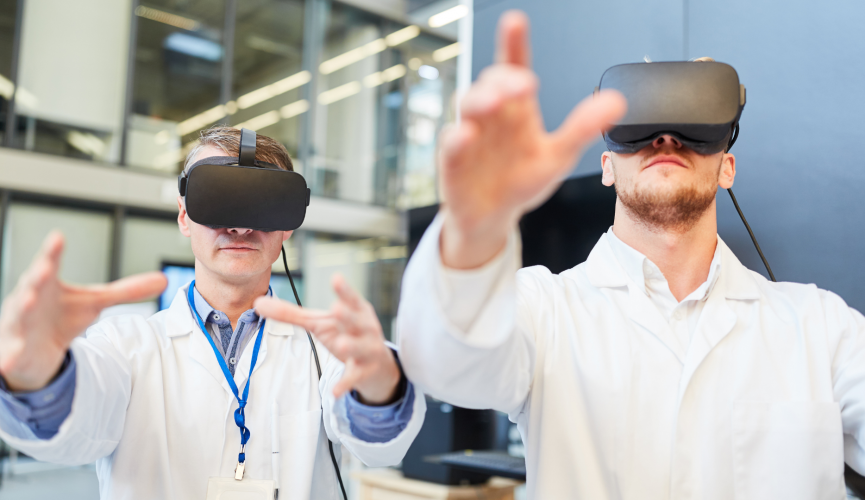For some, simulation training is a new and fascinating way to learn about the human body. But for others, it’s simply a tool for training. Either way, simulation is proving to be a powerful aid in the medical field.
What is Simulation Training?
Simulation training is a widely employed method for imparting essential skills required for medical practice. It’s extensively utilized across various states in the United States and is also embraced in numerous countries worldwide. Through simulation training, participants engage in scenarios that replicate real clinical settings, enabling them to practice and familiarize themselves with the procedures commonly performed in such environments. This hands-on experience not only enhances proficiency in utilizing medical equipment and surgical tools but also extends to aspects like identifying issues related to scrubs that may affect their movements during operations. Armed with this information, healthcare professionals can strive to enhance machine performance, replace outdated surgical tools, and select the best scrub pants 2024 for optimal comfort and functionality.
Simulation is proving to be a powerful aid in the medical field. Here are some of the benefits:
* The training helps save lives
* Realistic training enhances confidence
* Helps students develop critical thinking skills
* Helps students develop problem-solving skills
* Helps reduce medical errors
* Improves patient satisfaction
The benefits of simulation training are essential, but the most important benefit of simulation training is that it helps save lives.
The training helps save lives
The life-saving potential of surgical simulation training is not well known in the current healthcare environment. So simulation training for healthcare professionals can be considered a rare tool in healthcare. An example of simulation training can help you understand this concept better. For instance, healthcare professionals can create a simulated environment to practice saving the life of a person having severe arterial bleeding.
This environment is made using different artificial materials to replicate the situation of arterial bleeding. In this simulated environment, healthcare professionals can practice their knowledge that the first step to stopping arterial bleeding is to apply direct pressure, then cover the wound, and use a tourniquet. On a similar note, simulation training can be used to practice skills for other medical emergencies, such as CPR and choking. This gives healthcare professionals the opportunity to practice lifesaving skills in a safe environment.
In this era of high costs, hospitals are under increasing financial pressure with rising preventive health care costs. As a result, hospitals are looking for new and innovative ways to improve the health of their workforce and reduce the cost of healthcare. Simulator training, which is a relatively new concept in healthcare, is one of the most promising techniques for cost-effective and efficient healthcare.
Realistic training enhances confidence
We all want to develop our skills and abilities, and one great way to do it is to pick up a game. There is a whole industry of video game training that’s been popping up all over the world, and the popularity of these programs is growing. Why not get in on the action? A lot of professional athletes use video game training as a way to refine their skills and build their confidence. It’s no wonder then that research on the benefits of video game training is exploding.
Helps students develop critical thinking skills
In simulation training, groups of participants use computer technology to learn about procedures like surgery or nursing. Participants do not learn the actual procedure but rather the procedural steps, which are then tested under the same conditions as the actual procedure would be. This training is used in many places and industries, including healthcare, aviation, and the military.
Helps students develop problem-solving skills
It’s not surprising that the majority of people who are certified as a nurse do not have a bachelor’s degree in nursing. One explanation is that many schools have requirements for nursing programs that are so challenging that even those with bachelor’s degrees in other disciplines often find themselves unable to pass the required exams. Students may find it difficult to learn about problems and how to deal with them in everyday life. They can, however, develop problem-solving skills by taking part in a simulation training program that will give them the ability to deal with real problems.
Helps reduce medical errors
Simulation training is a method of training that helps prevent medical errors. Some of the Best healthcare podcasts, medical journals, and medical conferences in the country have discussed the benefits of AR and VR training, and how they could develop accuracy in medical professionals. Simulation is an accurate representation of real-life situations, in which users can practice skills and techniques before they are required in a longer or real-life situation.
Improves patient satisfaction
Used in healthcare and other training fields, simulation training is a proven method for increasing the trainer’s effectiveness, which improves patient satisfaction. The benefits of simulation training are significant, and the most important is that it helps save lives.

